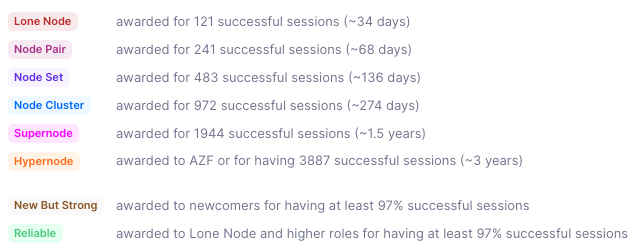Learn to analyze community validators on your own to make the right decision. Lose your fear and take the leap towards decentralization
Why delegate to community validators (CV) instead of foundation validators (AZF)
- Decentralization: A decentralized network is more resilient, secure, and reliable. It is also more attractive to more conservative and hardcore crypto users.
- Rewards: Community validators have the option to charge less fees, which translates to a higher APR.
- Sustainability: Community validators spend resources, time and effort in offering their validation service. Nominating on them is a way to help them continue, which benefits the project.
- Community support: Validators often create dedicated content for free for the entire community, from guides and tutorials to technical analysis, videos, cool wallpapers, and much more. The more stake they have, the more they get motivated!
Analyzing a Community Validator: The technical aspect
There are several ways to analyze this parameter. We have different websites and tools that can help us to understand how a validator is working.
1. Using the official $AZERO wallet: https://azero.dev
We first go to the "Staking" menu;
In the top bar, we click/tap on "Targets";
From the green icon on the right, we can click/tap to show a new window with the performance of the validator in the last sessions.
Session number: Session number in which the validator was on the committee.
Blocks created: The number of blocks created by the validator for a specific session. The value should always be 64 or >. It can be lower in some situation, for example 63 or 62, but it should not be repeated very often.
Blocks expected: Blocks that the network has calculated should be created in that session for the selected validator. It should be = or < than the number of blocks created.
Max % reward: The value should always be 100%. Can it be less than or even 0 on some situation? Yes. If the validator performs poorly or is even offline when it enters the active committee, it will not generate staking rewards for that session.
ℹ️ Problems can happen and most validators are able to fix it within a few hours, if it happens a few times or it's the first time, you shouldn't leave the validator. If, on the contrary, it happens weekly or every day, you should consider looking for a more reliable validator.
✅ Example validator running perfectly
2. Using community tools: https://azero.live
One of the easiest ways is to look for the validator you are analyzing in the search engine, the website has a ranking that makes life easier for newbies;
What should you look for?
- Nodes labeled as "Reliable"
- Nodes that as time passes, obtain a higher label, for example; from "Lone Node" to "Node pair" or from "Node Pair" to "Node Set".
⚠️ At the time of writing, "Node Pair" is the highest rank for a community validator.
Analyzing a Community Validator: Contribution, activity in socials and transparency
While performance is the part that ensures that the node knows what it is doing in the most technical aspect, contributions are a reflection of the organization's or individual's real interest in the project and its long-term sustainability.
Each validator is different, they all do not have the same capacity to create content, nor do they have knowledge in the same fields outside of validation. However, we all have something to contribute to the community.
- Helping other users/validators: Is your validator willing to help on Telegram or Discord? Although Aleph Zero has its own moderators and even ambassadors, all help is welcome in an ever-expanding community.
- Creating content: Does your validator create content of some kind? Some create guides, others make TAs, infographics, videos, MEMEs, etc. Any content is valid!
- Events and airdrops: Some validators do events and airdrops, sharing is caring! However, we want to add an important note in this regard. If you are nominating to a community validator, avoid going to another for the simple fact of trying to win a prize, harming some to benefit others is a practice that we must avoid 🤝.
- Transparency: Some validators show statistics about the validator on their website. Many are those who leave you some form of contact: Mail, Telegram, Discord, etc. Knowing that there is someone to talk to behind is very important.
Videos
We hope that by following these simple tricks you will now be able to neutrally evaluate the performance of a validator in different aspects and also that you will be encouraged to join the growing list of users who are moving to community validators.















